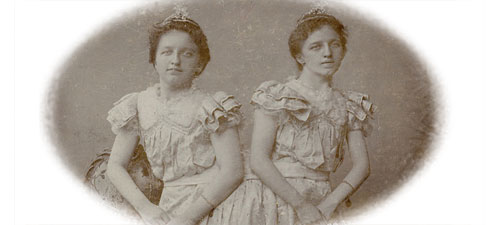According to Katarína Sabová, a Slovak student in international relations at Charles University in Prague, Slovaks are always charmed by the Czech pronunciation of a phrase like "I'm going to the mountains," or the Czech habit of peppering everyday speech with the swear word "vole" [whore]. But at the same time, they are saddened to see how little interest Czechs take in their sister nation since the dissolution of the federation. Even today, many Czechs view Slovakia as a sort of backward sibling. According to the most recent census, 193,000 Slovaks live in the Czech Republic, which makes them by far the largest foreign minority in the country. But the same is not true of the Czechs in Slovakia, who are only the third ranked minority, (after the Hungarians and the Roms) and unlike the Slovak minority in the Czech Republic, the number Czechs living in Slovakia appears to be dwindling. Most of those who remain continue to use their mother tongue, even when they have lived in the country for decades. It is a tendency to isolation that is not shared by the Slovaks who live in the Czech Republic, most of whom have a perfect mastery of the local language, including the impossibly awkward pronunciation of the letter ‘ř‘ ( a particular 'sch' sound). The state of Czechoslovakia may have been consigned to the history books, but the two populations still overlap, and the concept of Czechoslovakia as a designated territory in the heart of Europe with a dense network of cultural, familial and economic links is still well and truly alive.
Economically self-reliant Slovakia
In the newspapers of 17 years ago, discussions of Czech-Slovak relations were focused on more dramatic issues than the niceties of pronunciation. In the summer of 1992, the federation that bound the two countries together disappeared, and on the morning of 17 July, a crowd of about 100 people gathered in front of the National Council building in Bratislava with Slovak flags and and banners which read: "Long live Slovakia! Long live Mečiar!" [the former Slovak prime minister, Vladmir Mečiar]. It was an unlikely beginning for an economic miracle. "We wasted five years under Mečiar, fighting to preserve a liberal democratic regime. The real change occurred sometime later," remarks the Director of the Institute for Public Affairs, Grigorij Mesežnikov. The first wave of development came when reforms undertaken by the government of former prime minister, Mikuláš Dzurinda, provided a stable foundation for strong economic growth, which mainly benefited the upper-middle class. Manifestations of a new form of modern capitalism in the shape of business parks, shopping malls, leisure centres and industrial zones began to spring up alongside the factories dating from the communist period and the industrialisation of Slovakia. A new clean and tidy Bratislava became a symbol of an emerging self-confidence in the Slovakian economy. Skyscrapers sprouted on the horizon above the renovated old town — and those who remembered the somber provincial city of the communist era were astonished by the transformation.
Czech cultural dominance
Economist Pavol Kárász, a member of the Slovak academy of Sciences, was initially opposed to to the partition of the Czechoslovak market, with its 15 million consumers. Today, he believes that the separation has been of benefit to both countries. "It put an end to the pointless and unhealthy squabbling about who would foot the bill, the Czechs or the Slovaks. Totally transparent relations turned out to be a blessing for both economies. And the introduction of the euro was a boost to Slovak self-confidence — for once, we had succeeded in overtaking the Czechs." But economic progress did not undermine Czech cultural hegemony. Most Czechs remained largely indifferent to Slovak affairs, while Slovaks continued to be interested in the goings-on in the territory of their former federation partner. This remains the case in Slovakia: service stations sell Czech newspapers, cinemas show films subtitled in Czech, Czech TV programmes are watched by large audiences and the country's main television newscast always features a few Czech stories. Not surprisingly, many young Slovaks understand Czech, whereas the reverse is not the case. For the Czechs, Slovak words that have no direct relation to their Czech equivalents constitute an impenetrable language barrier.
"Czech culture is still dominant," explains sociologist Grigorij Mesežnikov. "In fact, for many Slovaks, the Czech Republic is still an important frame of reference." Economist Pavol Kárász goes even further: "When compared to the Czech Republic, Slovakia is not very productive intellectually. There isn't the same culture of debate and confrontation of ideas, and we don't have such a strong scientific tradition." He also explains that he is worried about what he believes is a "brain drain of Slovak experts" who are attracted to Czech universities. So 17 years after partition, Czechoslovakia still cannot be pronounced well and truly dead. Its unusually awkward name is still anchored in the languages of several countries. This was recently highlighted in the streets of Stockholm, on the occasion of the handover of the Presidency of the Union from the Czech Republic to Sweden. Close to half of those questioned in one report associated the term "Czechoslovakia" with *Entropa*, the controversial installation offered by the Czech Presidency of the Union, and the initiative of the government of former prime minister Mirek Topolánek.
Was this article useful? If so we are delighted!
It is freely available because we believe that the right to free and independent information is essential for democracy. But this right is not guaranteed forever, and independence comes at a cost. We need your support in order to continue publishing independent, multilingual news for all Europeans.
Discover our subscription offers and their exclusive benefits and become a member of our community now!












